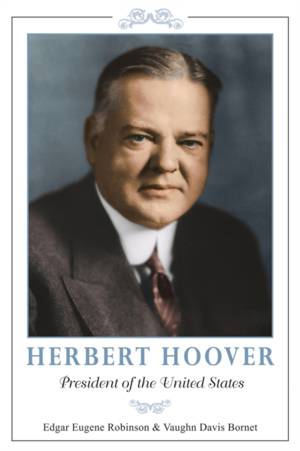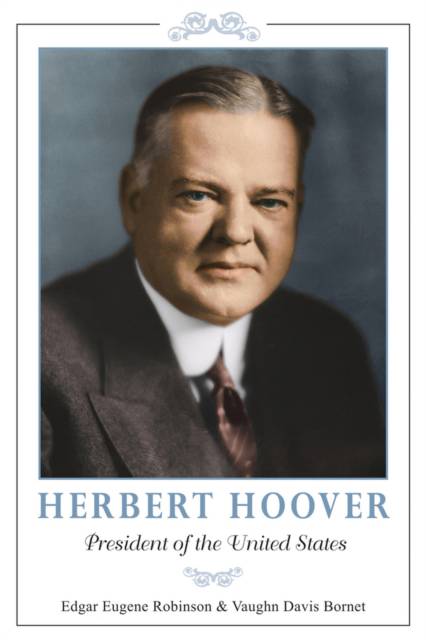
- Retrait gratuit dans votre magasin Club
- 7.000.000 titres dans notre catalogue
- Payer en toute sécurité
- Toujours un magasin près de chez vous
- Retrait gratuit dans votre magasin Club
- 7.000.0000 titres dans notre catalogue
- Payer en toute sécurité
- Toujours un magasin près de chez vous
Herbert Hoover
President of the United States
Vaughn Davis Bornet, Edgar Robinson
Livre broché | Anglais
32,45 €
+ 64 points
Description
This detailed account of Herbert Hoover's presidency reveals him as a staunch defender of constitutional government and one of our least understood presidents. Battling political partisanship while trying to place the needs of the nation as a whole over those of state and localities, Hoover found his program for America's entry into the new scientific era overwhelmed by profound changes in the social and economic structure of a nation entering a new age.
Spécifications
Parties prenantes
- Auteur(s) :
- Editeur:
Contenu
- Nombre de pages :
- 432
- Langue:
- Anglais
Caractéristiques
- EAN:
- 9780817914929
- Date de parution :
- 01-09-75
- Format:
- Livre broché
- Format numérique:
- Trade paperback (VS)
- Dimensions :
- 150 mm x 226 mm
- Poids :
- 703 g

Les avis
Nous publions uniquement les avis qui respectent les conditions requises. Consultez nos conditions pour les avis.






